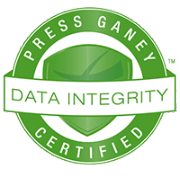How to Spot and Manage Bone Spurs in the Feet
Bone spurs commonly grow on top of the foot, on the toe, and on the back of the heel where the Achilles tendon connects to the heel bone.1 This can result in pain, swelling, and tenderness in the affected area. The most common cause of bone spurs on the feet is osteoarthritis, followed by high-impact activities that cause foot joint damage, like running and dancing.
The Influence of Running Cadence on Biomechanics and Injury Prevention: A Systematic Review
Running is a widely practiced physical activity with well-established health benefits. However, it is frequently associated with overuse musculoskeletal injuries. Among the modifiable biomechanical variables, increasing cadence, defined as the number of steps per minute, has emerged as a promising target for reducing injury risk by altering impact forces and load distribution. The aim of this review was to systematically evaluate and critically appraise the scientific evidence on the effects of running cadence modification on biomechanics and injury prevention in adult runners.
Understanding the differences between mobility and flexibility
Mobility and flexibility are related but distinct. Improving flexibility and mobility may improve a person’s athletic performance and range of motion, and help to reduce the risk of injuries.
How to Wrap a Sprained Ankle
Ankle sprains occur when the ligaments that connect bone to bone are stretched too far, causing inflammation and sometimes tears. These injuries most commonly affect the ligaments on the outside of the ankle when a person's foot rolls too far inward.1 This injury is called a "lateral ankle sprain." This can happen while walking on uneven surfaces, stepping off a curb, playing sports, or during a fall.
Proven Ways to Prevent and Relieve Muscle Soreness
Muscle soreness after exercising is normal and can occur during or directly after exercising, or even 24 to 48 hours after physical activity. There are a number of ways to relieve muscle soreness, including with high-protein intake, adequate hydration, rest and stretching.
Latest News
11049 Memorial Hermann Drive, Suite 200, Pearland, TX 77584

